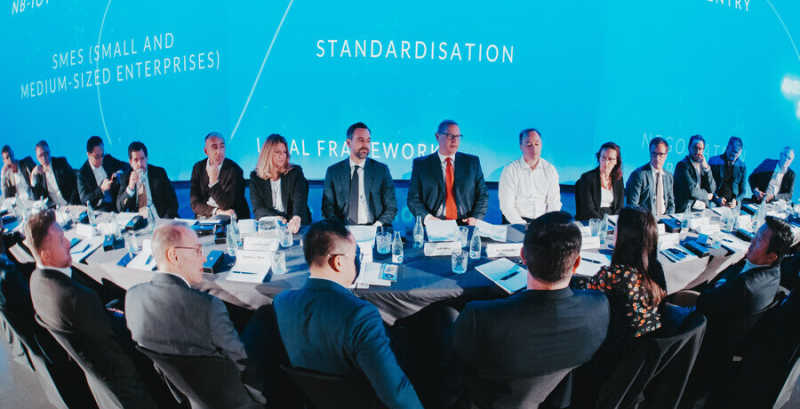Four takeaways from Sisvel Connect Barcelona 2024
When you bring together over 150 IP leaders for three days of detailed, SEP-related conversation, a few key themes are bound to emerge.
From 12th to 14th November Sisvel Connect took place in Barcelona. The first and last day saw patent owners that participate as licensors in various Sisvel pools meet to discuss issues affecting their programmes. On 13th November, they were joined by a number of other IP leaders for a one-day conference: “SEP Licensing and Policy – Now and the Future”.
At the event, a distinguished panel of speakers discussed many issues. These ranged from recent developments in the US, Europe and China through the evolving technology landscape to the ins and outs of dealmaking.
What was said in Barcelona has to stay in Barcelona. But the three days sparked a few general thoughts from the Sisvel comms pair of Joff Wild (JW) and Jacob Schindler (JS). These are shared below.
Good faith (JW)
Trust matters. With it you get deals done. In its absence, you will struggle to get many over the line without at least the threat of litigation. You gain trust by genuinely seeking to understand the other point of view, by looking for common ground and by doing what you say you are going to do time after time. With trust and understanding what seem like insurmountable obstacles can be overcome.
Technology developers and implementers are not different species. When you hear them speaking openly, as they did in Barcelona, you see a lot more that unites than separates: they have targets to work to, internal obstacles to overcome, red lines they cannot cross, results to deliver and so on. As a result, this is a market where people tend to get on well at a personal level whatever their disagreements on a corporate one. They understand each other. That is probably a big reason why most deals are done amicably. Sometimes this gets forgotten because it’s the disputes that get all the attention.
Peaceful war (JS)
Litigation is the continuation of licensing by other means. This re-working of Clausewitz’s famous maxim on war (a continuation of politics by other means) was introduced early in the day and revisited several times by different panels. What does it mean? That litigation is just another part of the toolbox that parties use to eventually arrive at a negotiated royalty rate. We shouldn’t be surprised, then, that some of the most contentious and high-stakes licensing engagements do enter the legal arena – even if nearly all of them will eventually end in a negotiated settlement.
By the same token, the mere existence of FRAND litigation is not evidence of a policy failure that needs correcting. Rather, it is an opportunity for independent judicial authority to help private actors reach an agreement.
When both counterparties acknowledge the others’ legitimate interests, person-to-person trust can be maintained among negotiators even amid legal action, several speakers agreed. On the other hand, some in the IP market take a very hard line when lawsuits are filed, hoping to establish deterrence.
But litigation is not war. There is no human tragedy involved, and there is nothing broken about a system which asks both patent owners and infringers to defend their conduct in front of a judge.
Transparency truths (JS)
There’s always a level of uncertainty in the patent market. Big unknowns around law, policy, validity, essentiality and so on all contribute to making deals harder to reach… or do they? What if the real problem is the exact opposite – information overload? If this were the case, we would expect to observe more conflict in the patent areas where the most extensive public data is available. And that is exactly what we do see, with so many SEP disputes focused on ETSI cellular standards.
There is an entire industry built around applying big data, AI and other tools to this corpus of cellular patent data. Negotiators with these figures at their disposal can readily find justification for their positions, which then become more entrenched.
The significant information disclosed around cellular patents is a major benefit to the whole ecosystem, including companies implementing those innovations. Openness is good, and patent pools like Sisvel’s contribute greatly to shining light on the often-opaque world of SEPs. But it may also be the case that more transparency will not automatically lead to less conflict.
Politics matters (JW)
What the SEP world looks like and how it functions is ultimately decided by people who are not involved in it day to day – predominantly judges and politicians. They set the rules that everyone works to.
SEP holders know how the courts operate and are adept at arguing their cases in front of them. They may not always win but they are at home in the environment. It’s a very different matter with politicians. The way they operate, what drives their decision making, how to engage with them are all too often alien territory. And that is a huge problem. It allows those who want to weaken patent rights to set the agenda. We have seen that in the US over the last 15 years and it is beginning to happen in Europe too.
There will always be more implementers of technology than developers of it, so SEP holders must get a lot smarter about making their case. It’s time to fight back aggressively against bad faith narratives, to proactively demonstrate the value of licensing – bilateral and via pools – and to find allies by making common cause with other IP owners. There is a strong case to be made but it needs to be presented in terms politicians can relate to: jobs, increased tax take, more investment in local and national economies.
Major decisions that will have a huge impact on SEP licensors are in the process of being made on both side of the Atlantic, as well as further afield. It is time to be heard.
